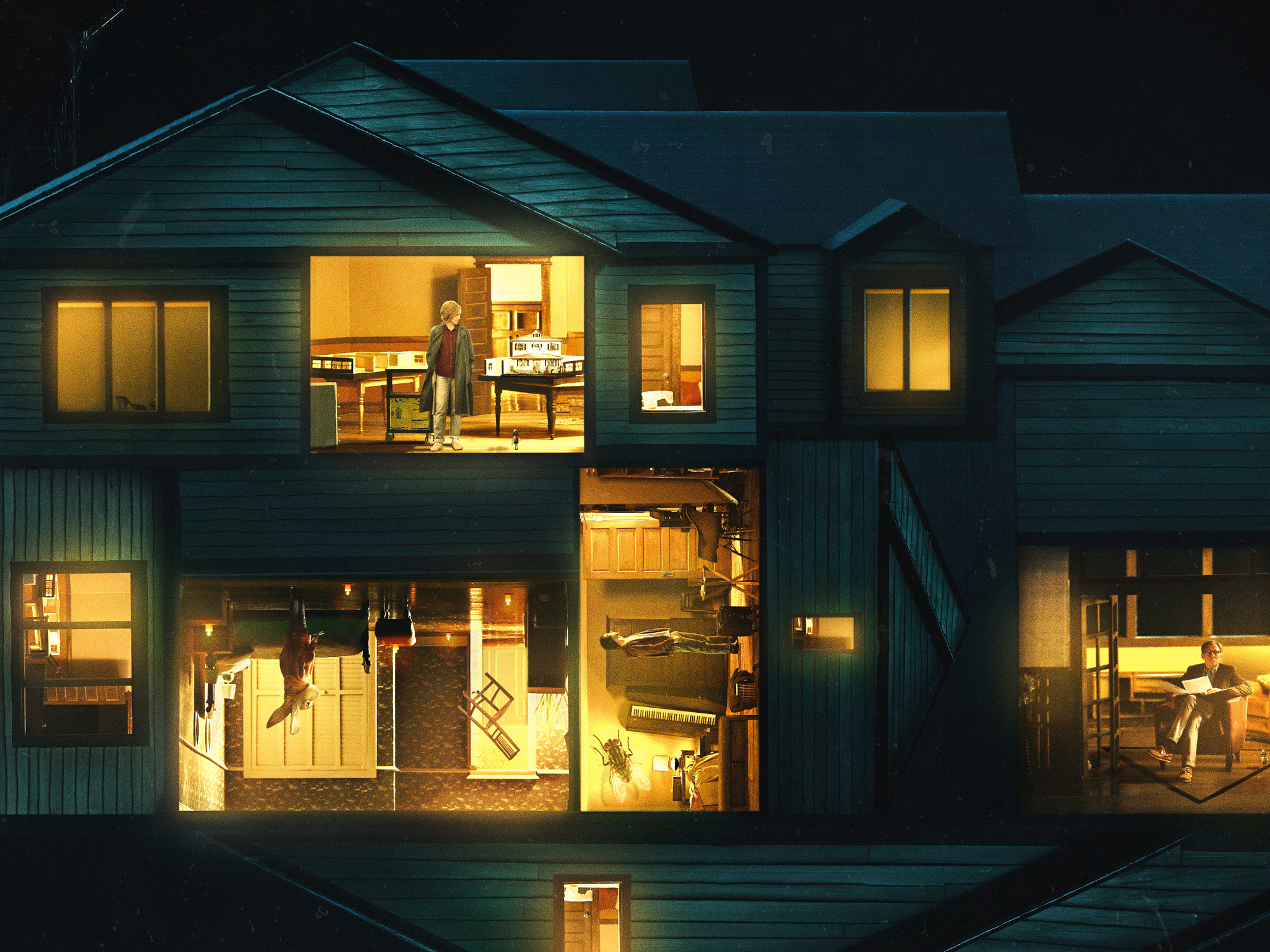Film Review: Hereditary
Hereditary will put you through the wringer
Much more than just a horror movie, Hereditary is an emotional experience designed to upset and traumatize. Brutal and beautiful, first-time feature director Ari Aster crafts a harrowing tale that is as engrossing as it is difficult to watch. Aided by haunting direction and cinematography, along with a bravura performances from Toni Collette and Alex Wolff, Hereditary is a pitch black exploration of family dynamics and the fallout of dark supernatural secrets. Mild spoilers ahead...
At first glance, Hereditary has the trappings of your typical horror film. With a troubled family, an odd and creepy child, and seances with the dead, you’d be forgiven for expecting easy scares from a standard supernatural thriller, especially with trailers and marketing material touting it as “the scariest film since The Exorcist.” However, there is nothing "easy" about Hereditary, and those entering the theater looking for cheap jump-scares and light popcorn fare will be sorely disappointed. That’s not to say Hereditary isn’t frightening - it’s downright horrifying, but in a way that defies expectation. A dark meditation on how you can never really know those closest to you and the dark secrets that families will bury, Hereditary will stay with you long after you leave the cinemas, and not always in a pleasant way.
The film follows the harrowing disintegration of the Graham family, and opens up with family woman Annie (a phenomenal Toni Collette) giving the eulogy at her mother’s funeral. Afterwards, she attends a local grief counseling group not out of mourning, but out of confusion as to how to respond to the difficult woman’s passing. It’s at this support group that Annie recounts her frigid relationship with her mother, as well as an awful family history that is strewn with tragedy. Her mother’s death has also strained her relationships at home, where a passive husband (Gabriel Byrne), stoner son (Alex Wolff, in the film’s other breakout performance), and oddly withdrawn daughter (Milly Shapiro, Broadway’s Matilda) await her. Annie’s work, where she dutifully creates detailed dioramas for her clients, begins to suffer as well - distracted and unfocused, she starts crafting disturbed vignettes from her own life in miniature (an inspired and creative storytelling device that Aster uses quite effectively). I won’t go much further into the plot, but it’s here that Aster’s meta-aware script prepares you for a slow descent into madness, only to completely upend the narrative with a turn so darkly grotesque and disturbing that it has on more than one occasion led audience members to walk out of the theater right in the middle of the film, as was the case at my screening.
Hereditary then, in its misery-laden denouement, becomes a fascinating cinematic paradox - a film that is hauntingly difficult to watch, but also utterly engrossing and captivating sheerly based on the strength of its cast. Toni Collette puts forth career-best work as Annie Graham, and you’ll be equal parts horrified and astonished at how expressive her emoting can be, with her twisting face and bone-chilling wails of grief and terror. Collette is a force of nature in Hereditary, and delivers a performance that will go down in history as a horror-movie benchmark for years to come. And while a lot of praise has been rightfully heaped upon Collette, one cannot overlook the work of Alex Wolff (Patriot's Day, My Friend Dahmer) as the family's stoner teen Peter Graham. Wolff more than holds his own opposite Collette, but in a different way. While Collette wears her reactions on her face, Wolff's equally memorable performance is more internalized - shock, grief, and terror, realistically bubbling just underneath perpetually teary eyes. It’s also impossible to talk about Hereditary without a mention of Milly Shapiro’s Charlie, the resident creepy child that owns some the film’s most chilling moments. It’s a far cry from her playful role as Matilda on Broadway, with her clucking tic and a gruesome doll-making hobby reminiscent of Sid from Toy Story. This brings us to Gabriel Byrne, who plays family patriarch Steve, who unfortunately is a little shortchanged as the family’s voice of reason and skepticism. It’s a passive and sleepy role that is, frankly, undercooked and never lives up to the talents of Byrne, a talented stage and screen actor.
With cinematographer Pawel Pogorzelski behind the lens, Hereditary also benefits from beautiful and inventive camerawork. Sweeping shots of the Graham estate evoke elegance as well as menace, with dark corners and hallways oozing with sinister intent; surreal zooms into Annie's dioramas that slowly turn into a real room with real people; these are just some of the tricks employed to toy with your perception. Another impressive feat is the film's nuanced scares that take place in the dark recesses of the Graham residence. While many other films will make hauntings jolting and obvious, Hereditary on more than one occasion makes its apparitions barely perceptible - subtle shapes in pitch black rooms that make you question what you're seeing - which renders its quieter scares that much more effective.
First-time feature director Ari Aster is already being touted as a new "master of horror," but the strengths of the movie stretch beyond the simple tropes of modern fright. A true "horror" film, Hereditary is the next step in the evolution of the genre, dealing in deep-rooted fear and despair that lingers long after you leave the theater. While modern gore tends to lean heavily into gonzo sensationalism for the sake of shock, Hereditary’s harder-to-stomach scenes have a purpose, leaving indelible impacts on the film’s plot and the viewers’ psyches. Even though there is some searingly grotesque imagery that even the likes of Eli Roth or Takeshi Miike wouldn’t touch, it doesn’t feel half as exploitative, and will leave you pondering much more than a dangling eyeball or severed limb ever would. Just don’t do any of that thinking at night.











